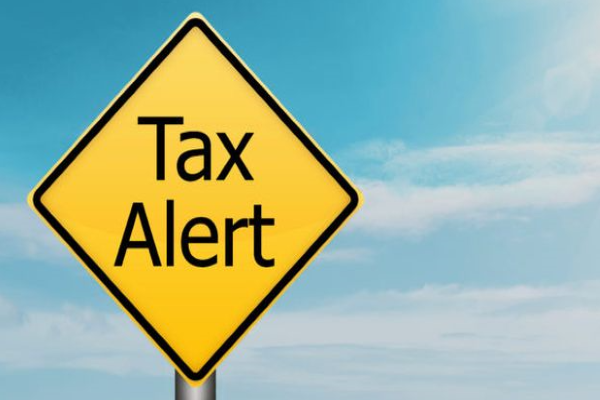Take a look at our August 2022 snapshot of taxation developments that may affect your business, investments or superannuation. Please get in touch if you have questions or need assistance.

ATO reminder to small businesses this tax time
Small businesses are again in the ATO’s sights this tax time, with a focus on stamping out deductions not related to business income, overclaiming of expenses, omission of business income and insufficient records to substantiate claims.
The ATO receives external data from a variety of sources, including the taxable payments reporting system for certain industries. This data can be used to data-match information included in tax returns to ensure completeness and accuracy.
Businesses can only claim what they are entitled to, and the claiming method may differ depending on the type of business structure. For example, sole traders need to claim deductions in their individual tax return in the “Business and professional items” schedule, while partnerships, trusts, and companies need to claim deductions in their respective tax returns.
ATO warns against asset wash sales
With COVID-19 lockdowns and restrictions in the rear-view mirrors of most of the country, the ATO is also beginning to resume ordinary compliance activity levels. One of the many areas it will be paying close attention to this tax time is “asset wash sales”.
TIP: An asset wash sale involves a person or business disposing of assets just before the end of the financial year. After a short period of time, they then reacquire the same or substantially similar assets. The ATO views these transactions as a form of tax avoidance.
Although there may be legitimate reasons for selling and then reacquiring the same or substantially similar assets, a wash sale is different from normal buying and selling as it is usually undertaken for the artificial purpose of generating a tax benefit – such as a capital loss – in the current financial year.
The assets involved in wash sales are not necessarily traditional assets such as shares. Taxpayers could also be disposing of crypto-assets and reacquiring them later as a part of a wash sale. With the price of many crypto-assets at a low ebb, people looking to rid themselves of these assets need to be careful they do not inadvertently attract the attention of the ATO.
To stamp out this behaviour this tax time, the ATO will use analytics to identify wash sales through data from various share registries and crypto-asset exchanges. Where the system identifies a wash sale, the capital loss claimed by the taxpayer in their tax return will be rejected. The Commissioner of Taxation may then make a determination to adjust their tax situation, and compliance action and additional tax, interest and penalties may be applied
ATO protocol for legal professional privilege
As a part of the ATO’s extensive information-gathering powers, it can compel taxpayers to furnish or produce certain documents. However, information and documents where the underlying communication is privileged do not have to be provided. Legal professional privilege (LPP) operates as an immunity from any obligation to disclose documents created by these powers.
Recently, the ATO released a protocol which contains its recommended approach for identifying communications covered by LPP and making LPP claims. While it’s voluntary to follow the steps outlined, it’s more likely that the ATO will accept LPP claims without further enquiries if the protocol is followed.
The protocol applies to both legal practitioners and non-legal practitioners and all LPP claims, regardless of the firm or business structure within which the service or engagement is provided.
The protocol itself contains three steps for taxpayers who receive an information-gathering notice and wish to make an LPP claim:
- assessing the full situation and all of the communications involved;
- explaining the basis of the LPP claim; and
- advising the ATO how the LPP claim was approached.
TIP: Legal professional privilege is a highly contested area and whether a document or information is subject to LPP can depend on the facts of your individual case. If you’ve been issued a notice under the ATO’s formal information-gathering powers, we can save you time and help you work out which documents are subject to LPP under the new protocol.
Is this the end for stamp duty in New South Wales?
In the NSW Budget handed down on 21 June 2022, the State Government announced plans to make some transfer duty optional from January 2023. However, the scope of the proposal is quite limited at this stage.
The key features announced are as follows.
- First home buyers purchasing properties for up to $1.5 million on or after 16 January 2023 will be able to choose to pay an annual property tax instead of stamp duty.
- There will be a higher rate of annual property tax for investors than for owner occupiers, with rates indexed annually to wage growth.
- The tax will be based on a financial year, unlike land tax, which is based on a calendar year.
- The existing First Home Buyers Assistance Scheme duty concessions for properties valued up to $800,000 will remain.
- The property tax will only be payable by first home buyers who choose it, and will not apply to subsequent purchasers of a property.
Of course, legislation must first be enacted and the details remain to be seen, including the transitional provisions that will apply.
If the announcements become law, by next January NSW will have the existing transfer duty regime, the existing land tax regime and a new annual property tax all running in parallel.
Current compliance issues in the SMSF space
The self managed superannuation fund (SMSF) space has always been a complex area for trustees, beneficiaries and advisers. In the past few years, the ATO has made many concessions and has put compliance action on hold because of COVID-19. However, for the 2022–2023 year and beyond it’s looking to scale up its compliance program as a reaction to indicators of heightened risk in the sector.
Recent statistics indicate that there are around 600,000 SMSFs, with over 1.1 million members holding an estimated total asset value of $876 billion.
While the ATO’s main compliance focus will always be on any activity that puts retirement savings at risk or inappropriately takes advantage of the concessional tax environment, in the near-term it will focus specifically on illegal early release of super in all forms. This is when individuals access their retirement savings before a condition of release has been met. This type of activity is currently on the rise.
One of the big red flags that the ATO looks out for is when individuals establish their SMSF and initiate a rollover but then fail to lodge a corresponding first annual return. This is a good predictor that an illegal early release has occurred, either as a result of deliberate behaviour or participation in a scheme.
New registrants that do not lodge will now be targeted with a “three strikes and you’re out” compliance campaign. The ATO will first issue a “blue letter” that encourages the SMSF trustees to take immediate action to lodge, offering a pathway for those who need support. If no response is received from the blue letter, the ATO will follow up with an “amber letter” warning trustees of the consequences of failing to lodge their return. Finally, if no response is received from the amber letter, a final warning or “red letter” will be issued advising the trustees that the ATO has commenced the disqualification process and will consider other enforcement action.
The ATO issued its first and second batches of “red letters” to funds in early April and June 2022.
SMSF TBAR to be streamlined
In good news for trustees of self managed superannuation funds (SMSFs) and after much community consultation, transfer balance account event-based reporting (TBAR) will soon be streamlined for convenience.
The TBAR allows the ATO to record and track an individual’s balance for both their transfer balance cap and total superannuation balance. That information is not extracted from the SMSF annual return, or any information shared through a rollover. Under the existing framework, an SMSF must report common events that affect a member’s transfer balance account when they happen.
An SMSF may be required to report earlier if a member has exceeded their personal transfer balance cap. For individuals who start their first retirement phase income stream on or after 1 July 2021, their personal transfer balance cap will be $1.7 million.
From 1 July 2023, the TBAR will be streamlined by removing the total super balance threshold and requiring all SMSFs to report 28 days after the end of the quarter in which a reportable event occurred. Some obligations to report earlier will continue.
Under the new streamlined framework, trustees of SMSFs will still be allowed to report transfer account balance events more frequently if they wish. This may be beneficial in instances where members are close to their personal transfer balance cap, and will avoid excess transfer balance determinations.
Please get in touch with your local Accru Harris Orchard advisor if you would like to know more about how these superannuation and tax developments affect you. We also offer a range of taxation services to help you meet tax requirements.
Clients should not act solely on the basis of the material contained in Client Alert. Items herein are general comments only and do not constitute or convey advice per se. Also changes in legislation may occur quickly. We therefore recommend that our formal advice be sought before acting in any of the areas. Client Alert is issued as a helpful guide to clients and for their private information. Therefore it should be regarded as confidential and not be made available to any person without our prior approval.
